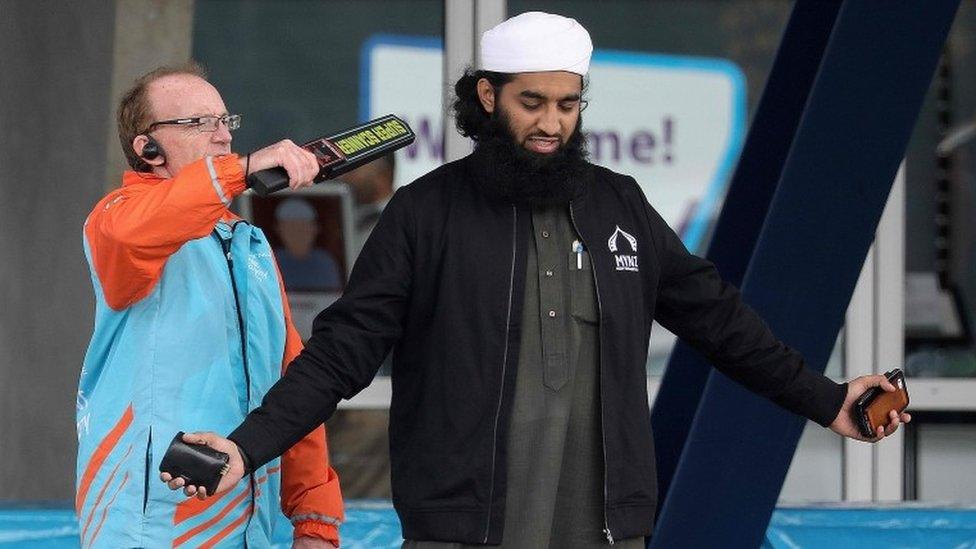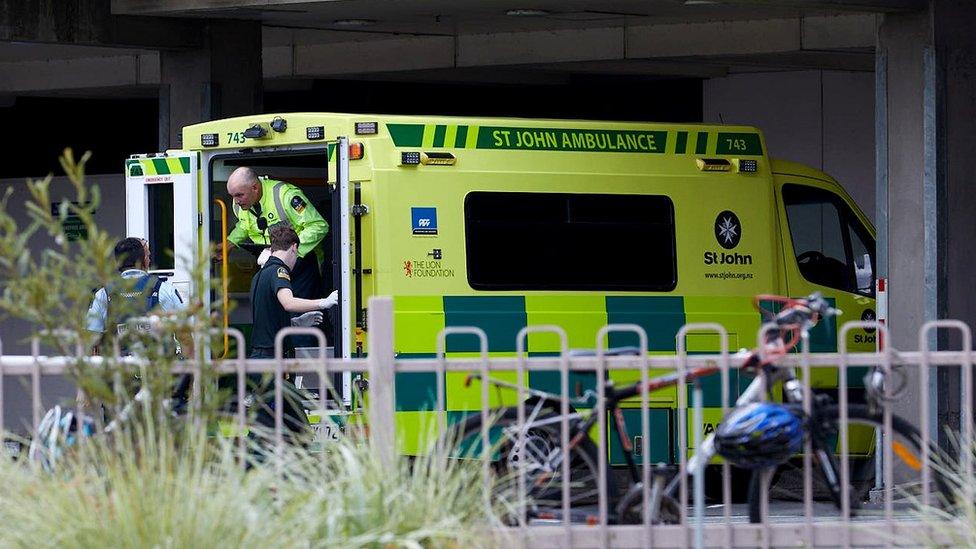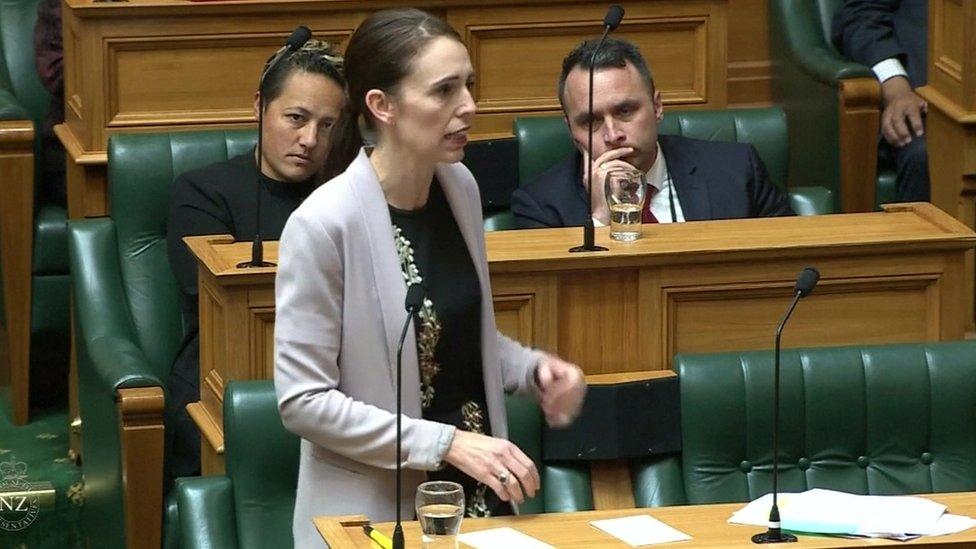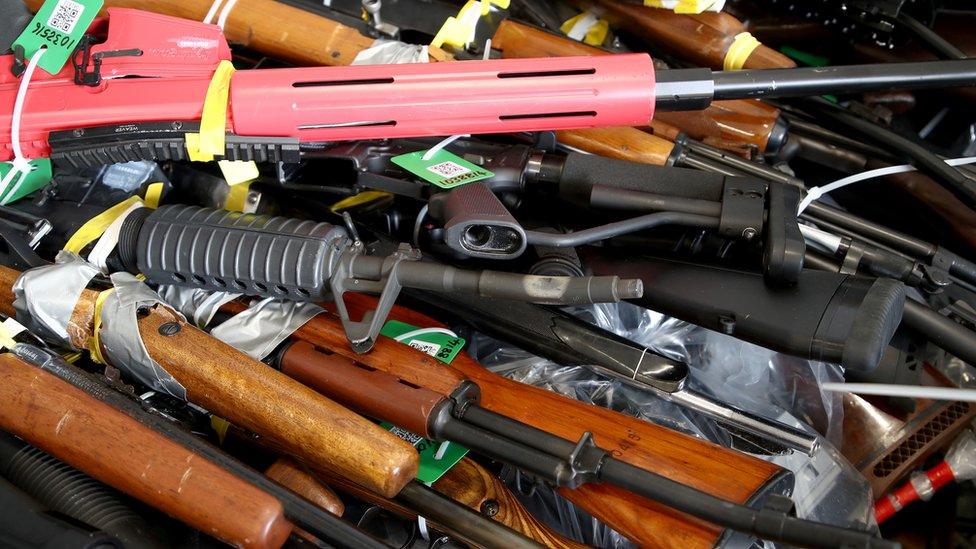Christchurch mosque attacks: NZ has 'fundamentally changed' says PM
- Published
New Zealand has "fundamentally changed" since the Christchurch mosque attacks, says PM
New Zealand has "fundamentally changed" since the Christchurch mosque attacks one year ago, Prime Minister Jacinda Ardern has said.
Fifty-one people died when a gunman attacked two mosques last March.
Hundreds of people from the mosques attended a joint prayer meeting at the Horncastle Arena in the city to mark the anniversary.
Although the anniversary is on Sunday, it was the mosques' Friday prayers that were targeted last year.
The arena is near the Al Noor mosque, where 43 people were killed. Eight were killed at the Linwood mosque.
A second larger event will be held on Sunday, also at the arena.

Security was strict before the joint prayer meeting in Christchurch
At a news conference, Prime Minister Jacinda Ardern said "New Zealand and its people have fundamentally changed" since the attacks.
She also acknowledged that "much more" needed to be done to stop radicalisation in the country.
"The challenge for us will be ensuring in our everyday actions, and every opportunity where we see bullying, harassment, racism, discrimination, calling it out as a nation," she said.
"That is when we'll show we each individually have a role to play in making sure that New Zealand has changed fundamentally for the better."
Wasseim and his daughter are survivors of New Zealand's Christchurch mosques shooting
What happened a year ago?
On 15 March, a gunman drove to the Al Noor mosque (Masjid An-Nur) in Christchurch took a gun from his car, then entered the building and began shooting.
After less than 30 seconds, he returned to his car, picked up another weapon, then re-entered the mosque and resumed his attack.
Footage from a headcam he was wearing showed him pass from room to room, killing as he went. The shootings were broadcast on Facebook Live.
Maryam Gul says she has forgiven the man who killed her brother and parents
The attacker then drove to the Linwood mosque. He shot two people outside, then shot at the windows.
A man from inside the mosque came outside, picked up one of the attacker's shotguns, and chased him away.
Two police officers then chased and arrested the suspect, 21 minutes after the first emergency call from the Al Noor mosque.

More on the Christchurch attacks
The BBC report from the day of the shootings

What happened to the suspect?
Brenton Tarrant, then 28, appeared in court the next day.
In June, the Australian pleaded not guilty to the murder of 51 people, the attempted murder of another 40, and to one terrorism charge.
His trial is due to begin on 2 June.
How have gun laws changed?
Immediately after the attacks, Ms Ardern said the government would bring in laws to make it harder for New Zealanders to access firearms.
In April, less than a month after the shootings, parliament voted by 119 to 1 to change the gun laws.
Military-style semi-automatic weapons were banned, as were parts that could be used to build prohibited firearms.
In June, a buy-back scheme began, where the government would compensate owners of newly-illegal weapons.
Prime Minister Arden told reporters on Friday that, under the scheme, 60,907 prohibited firearms have been removed from circulation.
But one gun owners' group said many more prohibited guns are still in circulation.

More on New Zealand's gun laws
'The law changed, and made everyone feel safer'

- Published21 March 2019

- Published10 April 2019

- Published21 December 2019
